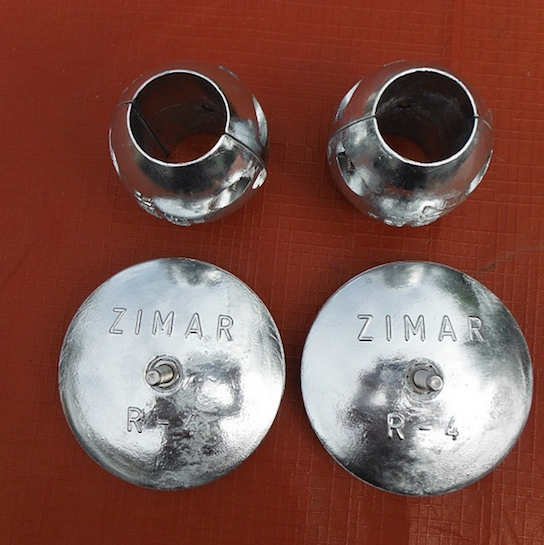

Even if you don’t have an aluminum out-drive casting and stainless steel propeller on your boat (spoiler alert: the aluminum can and will break down quickly over time), the materials on other boats can have a serious impact on yours.
The more opposite the metals, the more corrosion will occur.
The greatest problem lies in the combination of the grounding wire and seawater that creates the damaging current for anode (or active) metals on your boat. For example, if your boat has active metal and your neighbor’s boat doesn’t, you’ll experience corrosion more quickly. In fact, the more noble the materials used in neighboring boats, the worse the effects will be on your own boat.
Why You Need to Change Your Boat’s Zincs
Galvanic corrosion is a problem you’ll face as a boat owner whether you like it or not.
Simply put, galvanic corrosion occurs when two dissimilar metals are placed together in a corrosive liquid. And for yacht and boat owners, saltwater is the worst corrosive liquid of all.
To be sure, not all metals are as corrosive as others. Specifically, anodes are and cathodes aren’t. And when put together in saltwater, these metals will cause corrosion (and the more dissimilar the metals, the more the corrosion).
Even if there are no dissimilar metals on your yacht or boat, close proximity to other boats (particularly during docking) can cause costly problems. So, what’s a boat owner to do? We have 4 actionable tips for you to below to answer this very same question.
4 Steps You Can Take to Protect Against Corrosion
As a boater, you might be nervous thinking that corrosion is inevitable. However, there are steps you can take to ensure that you’re protecting the active metals aboard your vessel:
If you live in a warm climate, it’s even more important to take these steps since warm weather causes corrosion to happen much more quickly. Luckily, the proper use of paint on your boat’s hull and around underwater metals can also offer protection that slows the corrosive process.
Regular Maintenance and Service Can Identify Corrosion-Related Issues Before They Become Major Problems
Here in South Florida, corrosion can happen quickly, especially if you aren’t getting your boat or yacht regularly serviced. But at Oceanic Yacht Management, we take every necessary step to protect your boat while eliminating potential problems before they ever begin.
Contact us today at 561-406-4608 to take advantage of our over 35 years of experience and artisan approach to boat maintenance. We look forward to exceeding your discerning expectations and unique needs!
